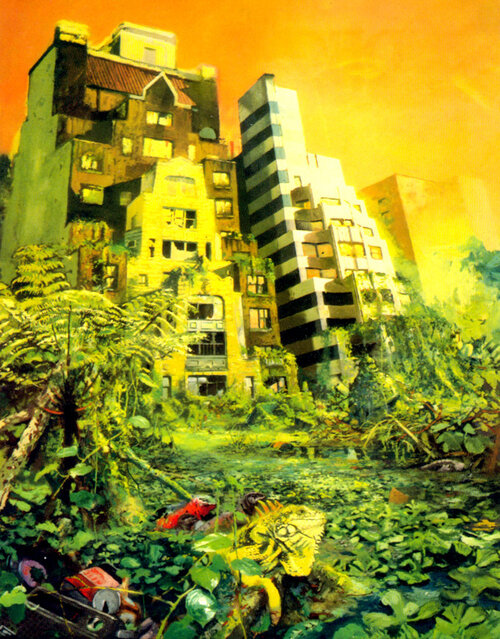Maybe "apocalyptic" is too strong a description for the state of the world in the ST universe.
Probably wisely, Star Trek never delved too deeply into the back story. Because a cop show set in 1990's Los Angeles is hardly likely to spend a lot of time yammering on about the Thirty Years War or the Justinian Plague. And the bulk of what is "known" about the major wars in ST's past come from beta canon (the novels), and that can be over-written in a heatbeat.
However, a few things can be pieced together:
1: Earth culture by the time of TOS is heavily slanted towards American Standard. Star Trek: TOS is often wrongly accused of having a very multi-cultural bridge crew... but it doesn't. It has a multi-*ethnic* bridge (and ship) crew, but everyone speaks English clearly and has standards that basically align with Good Americanism. This implies that the United States has had an outsized influence on the world through the 23rd century.
2: the pilot episode of ST:TNG includes Q producing a replica of a post-apocalyptic "courtroom," complete with drug-sniffing soldiers and floating hangin' judge. The humans crew who see this recognize it, so apparently it's accurate, and does indicate that things turned to Mad Maxian crap after WWIII.
Put the two together: The US survived and thrived. Somewhere else... didn't. There's a mix of European and Asian ethnicities and cultural influences in the courtroom, so perhaps what we're seeing is a region populated by Europeans, conquered by the Chinese, bombed into gravel. Possibly Paris? How else to explain why the French in the 24th century speak with English accents and spout Shakespeare? Because they were largely wiped out and then colonized by the English, who then went native... kinda.
The US after WWIII had an impressive economic depression. But somewhere else, likely much of Eurasia, went straight down the crapper. Had the Vulcans not been wandering by at that moment, or Cochrane's ship kerploded in the silo, then Earths reconstruction likely would have taken far longer. Imagine WWII ending up with all of Europe including Britain, Scandinavia and Switzerland being as bombed out as Dresden, and the US looking at that mess and saying "y'all are on yer own."




